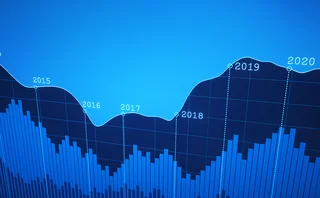
Oil price hits Asian currencies
Surging oil prices have put pressure on Asian currencies, but the impact has been magnified by other factors influencing the region, analysts told RiskNews’ sister publication, FX Week .
According to a study by the Asian Development Bank, the Philippines, Singapore, Thailand, India and Hong Kong are likely to be the most negatively affected. Historical correlations with oil prices over the past six months show Hong Kong three-month forwards (54%), the Indian rupee (46%), the yen (41%) and the Thai baht (31%) with the highest association of currency weakness with rising energy oil prices, said David Mann, senior international economist at Standard Chartered in London.
But analysts warn that high oil prices must be viewed in the context of global economies. There have also been concerns over interest rate hikes in the US, leading to a slowdown in growth, globally, in the world trade cycle. "There’s probably a twofold impact because you get directly hit and then you get hit indirectly vis-a-vis the export channel," said Arthur Woo, economist at HSBC in Hong Kong.
The weakness does depend partly on what the demand conditions are like in the rest of the economy as well as external growth prospects, and consequentially the outlook for Asian exports in general, says Sameer Goel, regional strategist at Bank of America in Singapore. This, coupled with weak local confidence, spells bad news for some currencies.
However, Goel notes that that weakness is to some extent "just an unwinding of appreciation".
Others believe weakness also comes from strength in the US dollar that is unrelated to the oil factor. "Everybody was long Asia and short dollars, now you’ve got all these Fed rate hikes so people are reversing their positions," said another unnamed strategist.
Only users who have a paid subscription or are part of a corporate subscription are able to print or copy content.
To access these options, along with all other subscription benefits, please contact info@risk.net or view our subscription options here: http://subscriptions.risk.net/subscribe
You are currently unable to print this content. Please contact info@risk.net to find out more.
You are currently unable to copy this content. Please contact info@risk.net to find out more.
Copyright Infopro Digital Limited. All rights reserved.
As outlined in our terms and conditions, https://www.infopro-digital.com/terms-and-conditions/subscriptions/ (point 2.4), printing is limited to a single copy.
If you would like to purchase additional rights please email info@risk.net
Copyright Infopro Digital Limited. All rights reserved.
You may share this content using our article tools. As outlined in our terms and conditions, https://www.infopro-digital.com/terms-and-conditions/subscriptions/ (clause 2.4), an Authorised User may only make one copy of the materials for their own personal use. You must also comply with the restrictions in clause 2.5.
If you would like to purchase additional rights please email info@risk.net
More on Economics
Global investment outlook: 2026 and beyond
Broadening, steepening and weakening: Franklin Templeton’s top investment ideas for 2026 and beyond
Webinar – Nowcasting the US economy
Join CME Group Chief Economist, Blu Putnam, as he shares insights using alternative data and nowcasting to monitor developments in the US economy.
Fed Funds Futures in a Post-ZIRP World
As the FOMC returns to more active management of its key target rate, Federal Funds futures have experienced dramatic growth.
Challenging economic pessimism: an optimistic note
A contrarian, upbeat view of the long-term economic outlook
Economists, like hedge fund traders, need open minds
Economists, risk managers and traders must learn the lessons of crisis, says Kaminski
Fed wrong not to start QE tapering, says UBS economist
The surprise decision by the Federal Reserve last month not to scale back its quantitative easing programme will create more volatility, says economist







